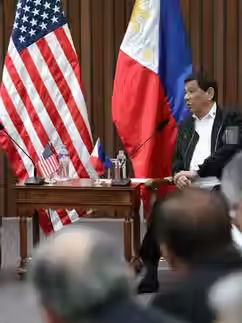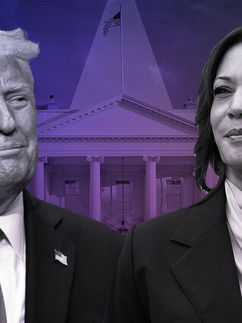China on the Global Stage: Understanding the GDI, GSI and the GCI
Tanisha Shah

China’s three global initiatives have sparked widespread attention and discussion among various nations and think tanks. The global initiatives are an integral part of Beijing’s multipronged strategy to achieve global governance. Opinions range from optimistic to cautious, ultimately underscoring the need for in-depth analysis of these initiatives.
Several questions emerged following the announcement of the Global Development Initiative (GDI) on September 21, 2021, at the 76th session of the United Nations General Assembly (UNGA) by Chinese President Xi Jinping. Is it an attempt at soft power, a strategy to advance the CCP’s global governance ambitions, or a genuine effort towards global development? The tense US-China relationship, power dynamics in the Indo-Pacific, the BRI and its criticisms among other factors necessitate further examination and debate.
Seven months later, in April 2022, Xi Jinping proposed the Global Security Initiative (GSI) at Boao Forum as a response to the deeply evolving security landscape. The GSI aims to address challenges with a ‘win-win mindset’ as detailed in its Concept Paper. Core principles include common, comprehensive, cooperative and sustainable security; sovereign equality and non-interference; adherence to the UN Charter (rejecting Cold War mentality and hegemonism); indivisible security; peaceful resolution of issues; and maintaining security across traditional and non-traditional domains.
The paper titled ‘US Hegemony and Its Perils’ was released by China’s Ministry of Foreign Affairs a day before The GSI Concept Paper, criticising the United States for using its hegemonic powers for political and military interference, prioritising domestic interests over international welfare, restricting Chinese companies in the US market, promoting American media and values globally, exploiting international financial institutions to impose unilateral sanctions and dubbing the US as ‘the United States of Sanctions’.
A US-DOD Congress Report countered that China’s global initiatives aim to oppose Washington’s growing efforts to strengthen international alliances in the Indo-Pacific and the formation of AUKUS, which Beijing perceives as encircling threats to its sovereignty. The report acknowledges that developing countries have responded positively to the GDI due to its association with the BRI; however, it notes apprehension towards the GSI’s overt opposition to the US-based rule order.
Finally, Xi Jinping announced the Global Civilisation Initiative (GCI) in March 2023 at the Communist Party of China (CPC) Dialogue with World Political Parties High-Level Meeting. The GCI promotes ‘respect for the diversity of civilisations and the principles of equity’ among other core concepts. An analysis by The Diplomat characterises the GCI as aligning with the conventional practice of promoting ‘attractive-sounding’ concepts that ultimately serve its own interests. A common assumption among the western elites is that the global initiatives were established to deter the western liberal norms and leverage the international rule-based order to underpin Chinese values and concerns.
The Global Development Initiative (GDI) represents a potential evolution of the BRI. The BRI was a policy branding exercise and it prioritised the economy over foreign affairs; however, the three global initiatives have reversed the equation. Criticised for its Sino-centric approach, the BRI contrasts with the GDI’s multilateral focus, introduced at the UNGA to aid developing countries in achieving their UN Sustainable Development Goals. This shift offers the BRI an opportunity to recalibrate and allow China to overcome the global criticisms towards it.
Hoang Thi Ha notes that the GDI enhances China’s image as a responsible provider in Southeast Asia, where it has been considerably well received. The GDI’s implications in bolstering Beijing’s position and economic governance, while simultaneously undermining Washington’s role, suggests that it transcends mere development cooperation. Mulakala views the GDI as ‘anchored’ in South-South cooperation, offering a border framework encompassing investments and diplomacy such as the BRI, as opposed to simply developmental assistance. A Progress Report for the GDI released in 2023 also shows positive progress in the 32 Deliverables of the High-level dialogue on global development with 14 tasks already accomplished and others either in progress or early harvests.
The three global initiatives prioritise global health, internet governance, climate change, and development finance – areas of significant interest to Beijing. The GDI’s appeal lies in its promise of development cooperation from one developing nation to another, focusing on economic growth - a proposition particularly attractive to Southeast Asian countries affected by the COVID-19 pandemic. Southeast Asian countries have unitedly displayed their acceptance of the GDI and all ten ASEAN states have further joined the Group of Friends of the GDI. Ha delves into the recent projects which include a sizable donation of funds and vaccines for COVID 19, cooperation in sustainability and green development, digital economy action plans and poverty reduction programs.
Many Southeast Asian nations are transitioning from aid recipients to partners in development cooperation with China. They aim to balance relations with both the US and China to secure their development and global standing without choosing sides. Beijing targets like-minded states who align with its belief that economic prosperity and development trumps individual rights. This narrative is further fueled by the slowly recovering economies of Southeast Asian countries post-pandemic who believe that the US is spending more money in assistance to the Ukraine than to aid and development packages, demonstrated by Washington’s trifled US$150 million in development aid at ASEAN-US summit in 2022 compared to its massive US$40 billion aid package to Ukraine.
Ruby Osman cautions against misinterpreting these initiatives as was done with the BRI. Countries’ future involvement with the GDI/GSI hinges on balancing their developmental aspirations against their objections over the influence these initiatives will yield to China. The GDI is not merely a display of economic statecraft but also a means for China to promote its state-centric model over Western ideologies and further its domestic and geopolitical agendas.
The Global Civilisation Initiative (GCI) underscores the divergence between China’s state-centric values and Western liberal values, framing it as a cultural distinction worthy of protection. Hoang Thi Ha contends that the GDI is a strategic move to validate China’s ‘developmental approach’ towards regional and global governance while discrediting ‘US’s security-centric approach’ within the Indo-Pacific region, positioning China as an emerging security provider in the region.
However, leveraging this cooperation in regional security matters may prove challenging, as Beijing has yet to secure trust from Southeast Asian nations. Actions such as Beijing’s rejection of the UNCLOS ruling favouring the Philippines against China’s actions in the South China Sea and increased militarisation in the East and the South China Sea have strained perceptions of China as a reliable security provider.
Though China’s initiatives may seem indistinct now, they are poised to gain definition in the years ahead, solidifying China’s role in global governance and expanding upon the groundwork laid by the BRI, as well as through international institutions and diplomatic channels. As US-China rivalry brews, these initiatives will increasingly come under scrutiny, likely leading to heightened bilateral and multilateral engagement with nations and institutions worldwide.
Tanisha Shah is an undergraduate student at Macquarie University, studying Security Studies and Arts. She is a content writer for The New Global Order and an editor for Grapeshot, Macquarie University’s magazine. With strong interests in intelligence, counterterrorism, feminist policy, and the Indo-Pacific region, Tanisha is passionate about issues of global security and gender equality. She enjoys reading, writing, and expanding her multilingual skills. Tanisha welcomes opportunities for networking and can be reached via LinkedIn.

















Comentários